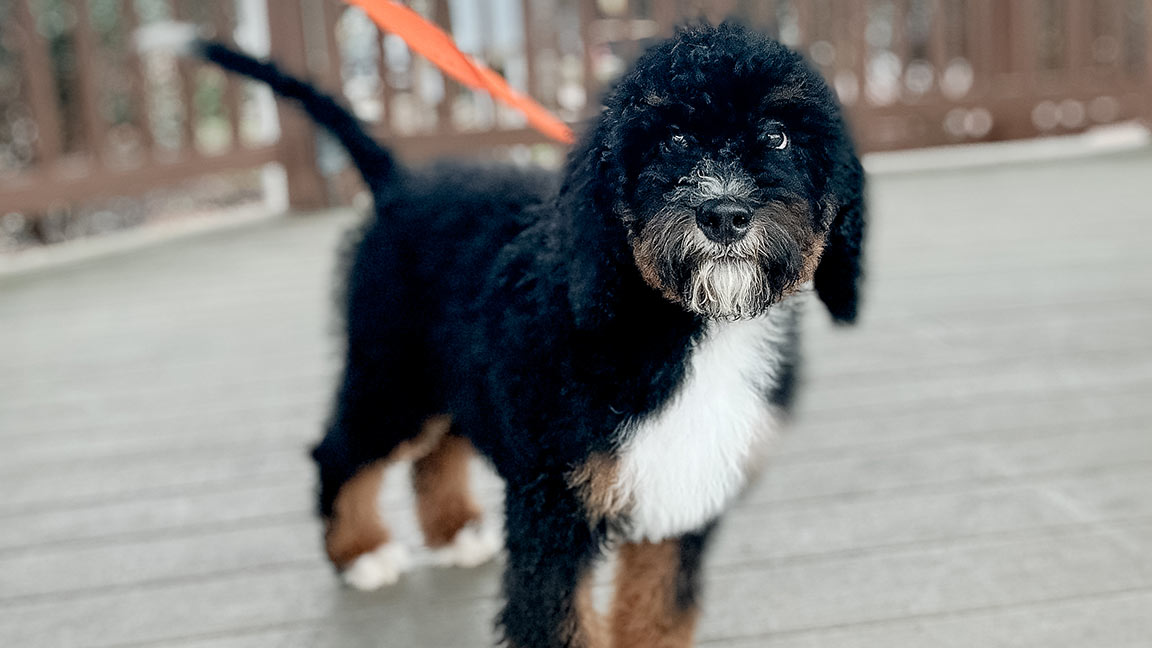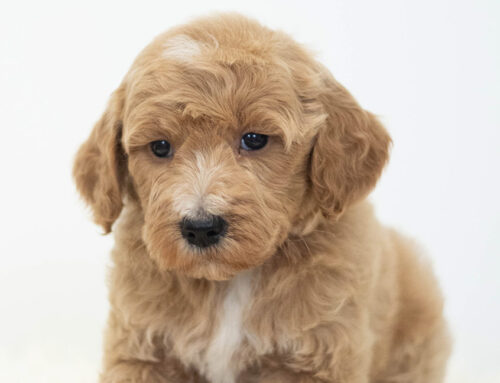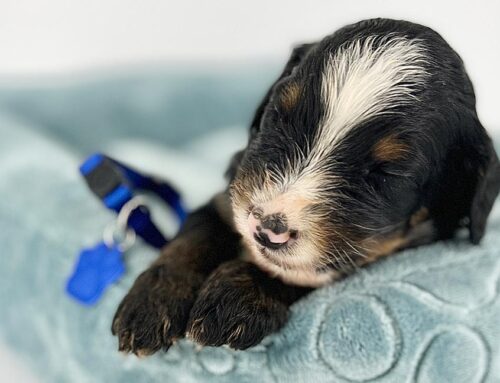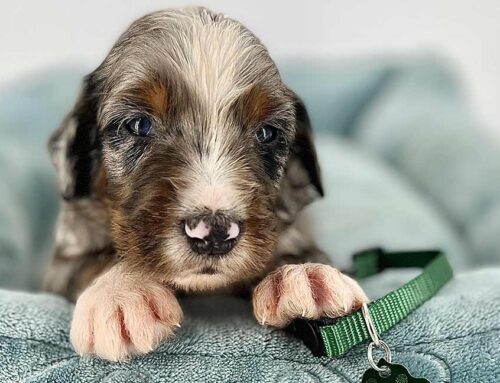Dog Dental Care: Keeping Those Puppy Smiles Healthy
Dog Dental Care: Keeping Those Puppy Smiles Healthy
At Double U Doodles, we see plenty of Bernedoodles and Sheepadoodles flash their happy grins, and trust us, nothing warms your heart quite like a doodle smile. But here’s the thing: just like people, dogs need regular dental care to keep those pearly whites shining and their health in top shape.
Dog dental care might not sound glamorous, but it’s one of the most important parts of keeping your pup healthy. From puppy teething to senior dog checkups, understanding how to protect your dog’s teeth and gums can add years of happiness to their life.
So let’s dive into why dog dental care matters, what you can do at home, and how to make it fun (yes, really!).
Why Dog Dental Care Matters
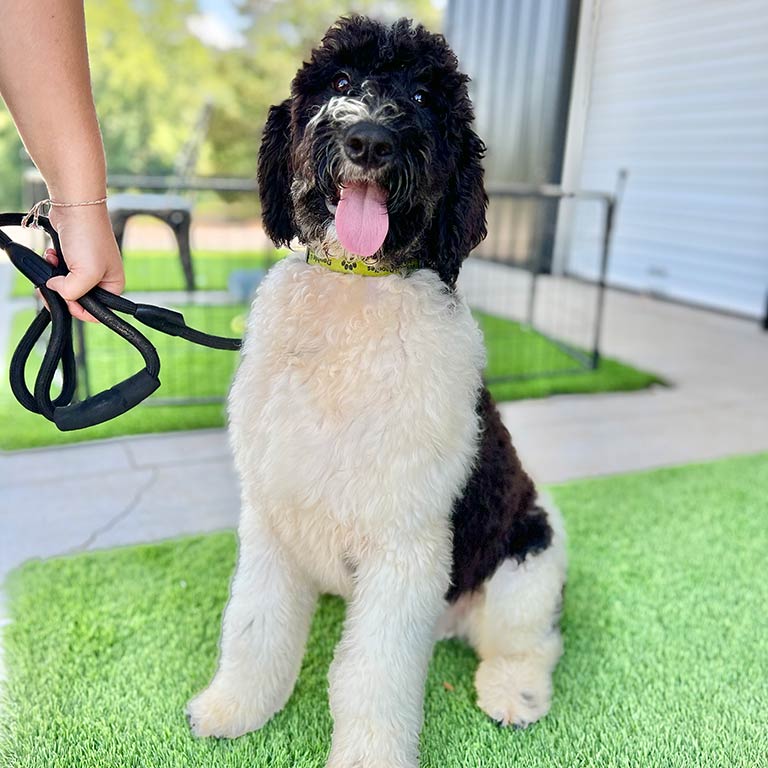
When we think of health, we often picture exercise, food, or grooming. Teeth are often overlooked, but poor oral health can lead to significant problems. Plaque and tartar build-up lead to gum disease, infections, and even organ damage if bacteria spread through the bloodstream.
Studies show that by age three, most dogs already show some signs of dental disease. That includes our beloved doodle breeds, who may love to chew but still need extra help keeping teeth clean.
Good dog dental care means:
- Preventing bad breath (puppy kisses should be sweet, not stinky).
- Avoiding tooth loss and painful infections.
- Supporting long-term overall health.
Signs Your Dog Might Have Dental Problems
Your doodle can’t tap you on the shoulder and say, “Hey, my tooth hurts,” but they do give clues. Watch for:
- Persistent bad breath
- Drooling more than usual
- Red, swollen, or bleeding gums
- Pawing at the mouth
- Reluctance to eat or chew toys
- Loose or missing teeth
If you notice these signs, it’s time for a vet visit.
The Basics of Dog Dental Care
So, what does good dog dental care actually look like? It’s simpler than you might think.
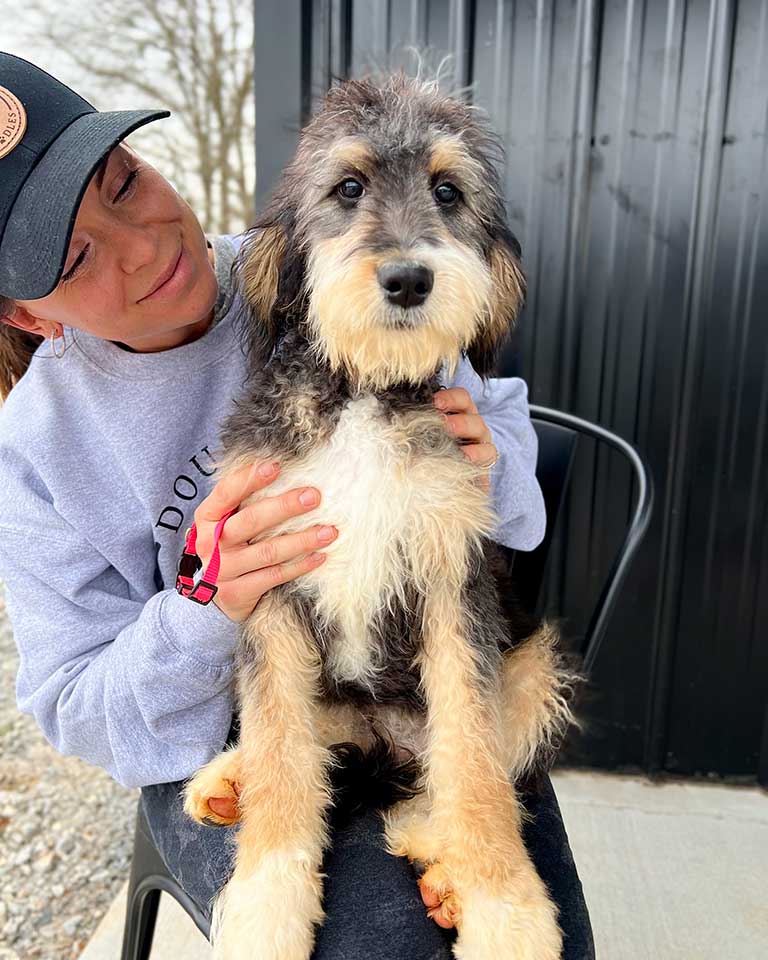
Brushing Your Dog’s Teeth
Yes, you read that right, brushing! Daily is best, but even a few times a week can make a difference. Use a dog-specific toothbrush and toothpaste (human toothpaste isn’t safe for dogs).
Start slow: let your dog taste the toothpaste, gently lift their lip, and reward them afterward. Before long, brushing can become part of your daily bonding routine.
Dental Chews and Toys
Chewing is a natural way for dogs to keep their teeth cleaner. Dental chews are designed to reduce plaque and tartar, while rubber toys can massage gums and strengthen jaws. Bernedoodles and Sheepadoodles especially love interactive toys, and if it helps their teeth, that’s a win-win.
Regular Vet Checkups
Even with great at-home care, your dog will need professional dental cleanings. Your veterinarian can check for hidden issues, polish teeth, and remove tartar buildup that brushing can’t handle. Most dogs benefit from an annual dental exam and cleaning.
Fun Ways to Make Dog Dental Care Easy
Dog dental care doesn’t have to be a chore. With the right approach, it can actually be fun.
- Turn brushing into a game: use flavored toothpaste like chicken or peanut butter (yes, they make those!).
- Chew time = treat time: offer dental chews after dinner as a nightly “dessert.”
- Incorporate training: teach commands like “open” or “smile” to make brushing easier.
- Positive reinforcement: lots of praise, cuddles, or a walk afterward helps your dog see dental care as a good thing.
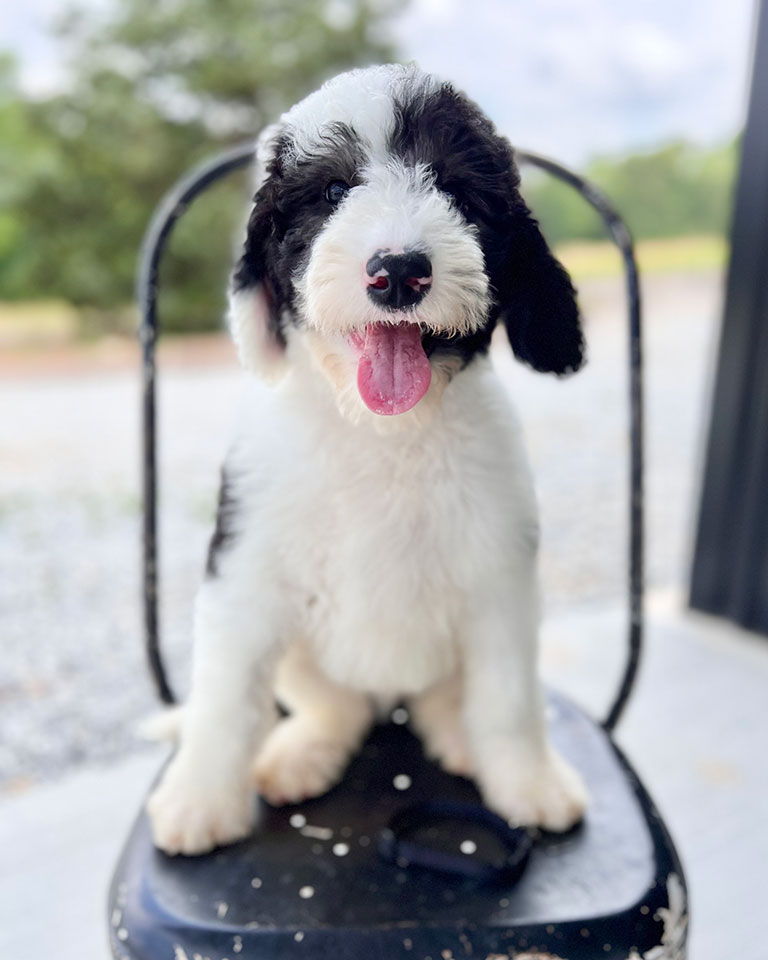
Dog Dental Care for Puppies
Puppies go through teething between three and six months of age, which means they chew everything in sight. During this stage:
- Provide safe chew toys to relieve sore gums.
- Avoid hard bones that could break teeth.
- Start gentle brushing habits early to get your pup used to the routine.
Starting dog dental care young sets your doodle up for lifelong healthy habits.
Dog Dental Care for Seniors
Senior Bernedoodles and Sheepadoodles may have different needs. Older dogs are more prone to gum disease, tooth decay, and tooth loss. For them:
- Keep up with regular vet cleanings.
- Use softer chews if teeth are sensitive.
- Consider supplements that support joint and gum health.
Comfort is key for senior doodles, so always adapt care to their stage of life.
Common Myths About Dog Dental Care
Let’s bust a few myths that might keep you from giving your pup the best care:
- “Dogs don’t need their teeth brushed.” False — they absolutely do.
- “Dry kibble cleans teeth.” Not enough. While kibble can help, it doesn’t replace brushing.
- “Bad breath is normal.” Not really. It often signals plaque or infection.
- “Chews are all the same.” Nope. Look for ones approved by the Veterinary Oral Health Council (VOHC).
Prevention Is the Best Medicine
The best way to avoid costly dental procedures is prevention. By brushing regularly, offering safe chew toys, and scheduling routine vet visits, you’re protecting your doodle’s health in the long run.
At Double U Doodles, we raise puppies with overall wellness in mind, from health-tested parents to socialization and training. Good dental habits continue that care at home and can even extend your dog’s lifespan.
Final Thoughts
A doodle’s smile is more than cute; it’s a window into their health. Taking time for dog dental care means fresh breath, fewer vet bills, and a longer, happier life together. With the right tools and a little patience, keeping your Bernedoodle or Sheepadoodle’s teeth clean can be easy and even fun.
So next time your pup flashes those puppy-dog eyes, remember: behind every doodle grin is a set of teeth that deserves as much care as the rest of them.
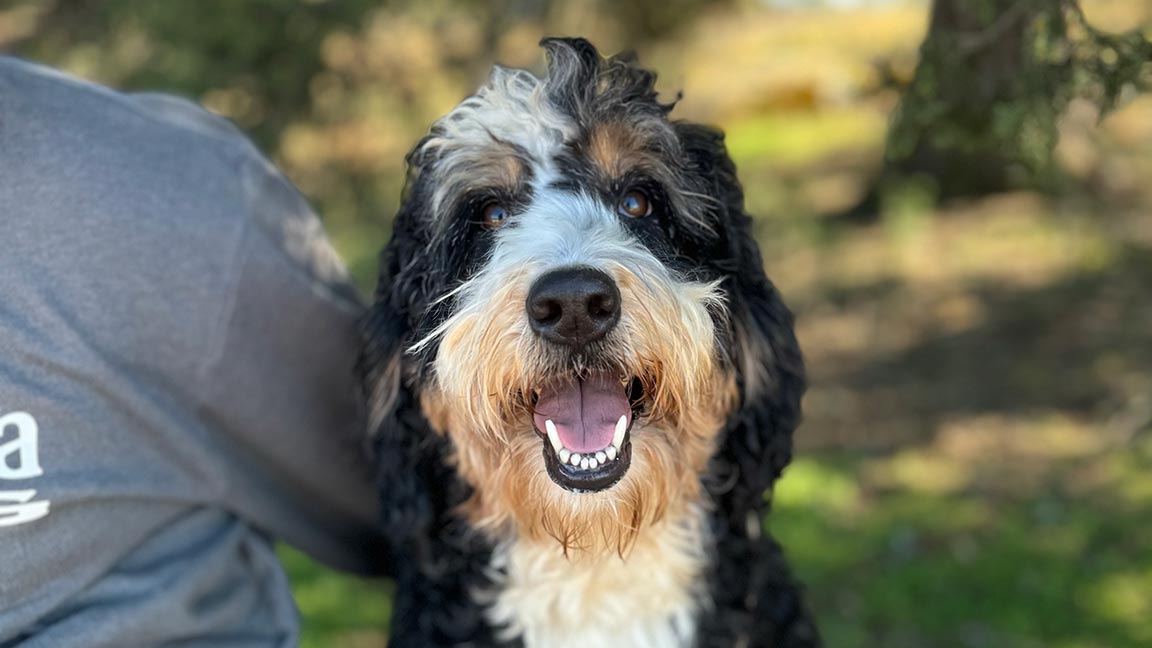
FAQ
How often should I brush my dog’s teeth?
Daily is ideal, but a few times a week can still help reduce plaque and tartar.
Do dental chews really work?
Yes, they help, but they shouldn’t replace brushing and regular vet cleanings.
Is bad breath always a sign of dental disease?
Often, yes. Persistent bad breath usually means something is wrong and needs a vet check.
When should my puppy start dental care?
Begin as soon as possible — even during teething. Early routines make brushing easier later.

